Overview
Herfah at Al Khater House
The Herfah Program is a Qatar Foundation initiative focused on reviving and promoting traditional crafts deeply rooted in Qatari and Islamic culture. Held at Al Khater House, the program is delivered in collaboration with The King’s Foundation School of Traditional Arts, known for their excellence in teaching and preserving heritage crafts. With its yearly program and weekly workshops, Herfah invites participants to engage in practical experiences that merge timeless traditions with creative expression.
The Herfah program offers Ramadan workshops covering a wide range of traditional arts and crafts. Each week, join us at Al Khater House from 9pm to 11pm to learn timeless skills, guided by expert artisans.
If you have any questions or need assistance, please feel free to reach out to herfah@qf.org.qa.
Herfah Ramadan Workshops
Whether you’re a beginner or a craft enthusiast, these Ramadan workshops offer hands-on experiences that blend tradition with personal expression in a reflective, communal atmosphere.
Explore Ramadan workshops and begin your creative journey with us.
Foundational Modules
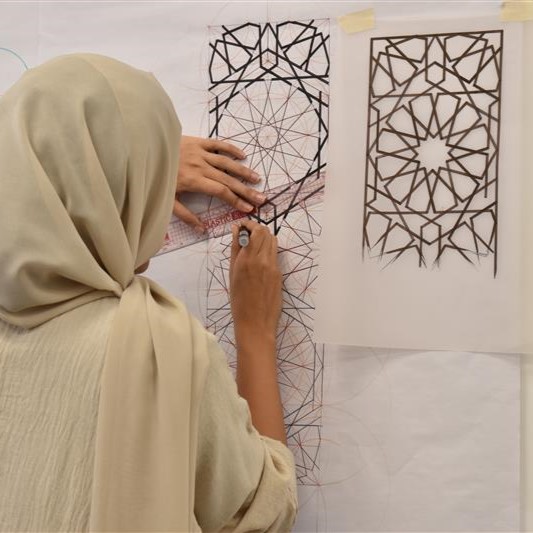
This introductory geometry class familiarizes students with the principles and language of traditional geometry, starting from nature’s creative principles and seeing how these inform traditional arts universally.
Geometry 1
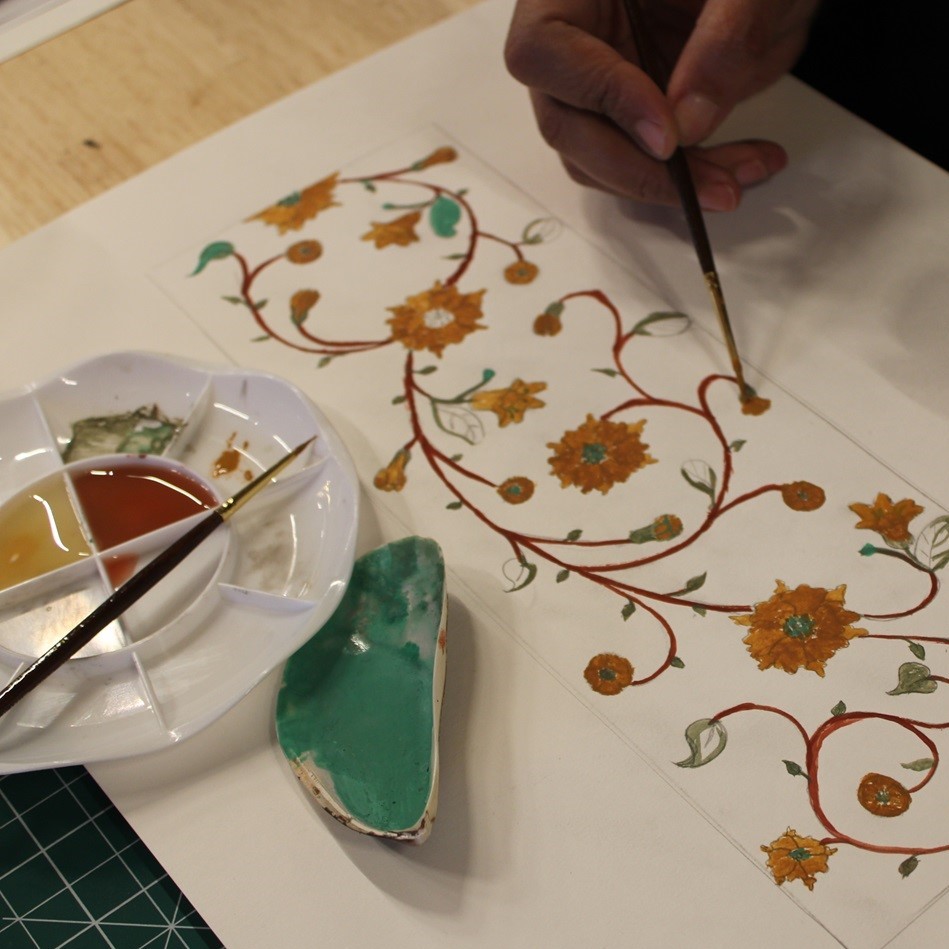
Starting with an overview and exploration of the formal language of stylized flower and plant forms in Islamic art, this course prepares students to recognize and develop the principles and forms that are prevalent in the art of biomorphic design.
Nabati Ornamentation: Motifs

This class introduces students to observational and analytical drawing skills. Students learn to stylize and refine drawn elements to reveal universal principles that are present within the particularities of our observed surroundings.
Drawing for Designers

This course introduces the processes of refinement and preparation. Learning to transform the raw materials of earth, stones, plants, and resins into paint gives the artist profound respect for the nature of their materials.
Methods and Materials of Painting
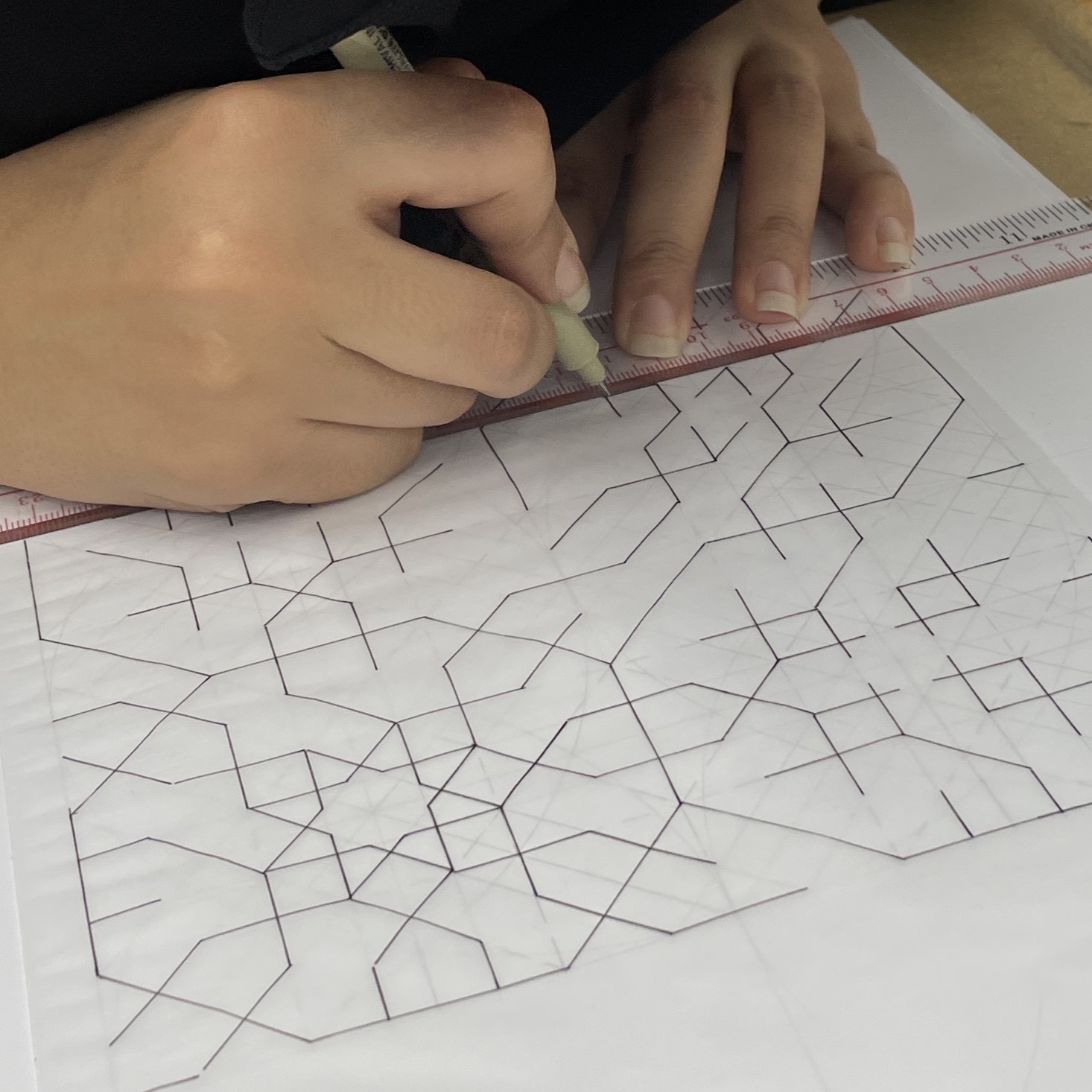
The second level of geometry courses develops the students’ drawing skills and understanding of pattern construction and composition. Students will extend their investigations into symmetry families derived from of the square root 2 and square root 3 proportions, as well as the basic Golden Mean grids.
Geometry 2
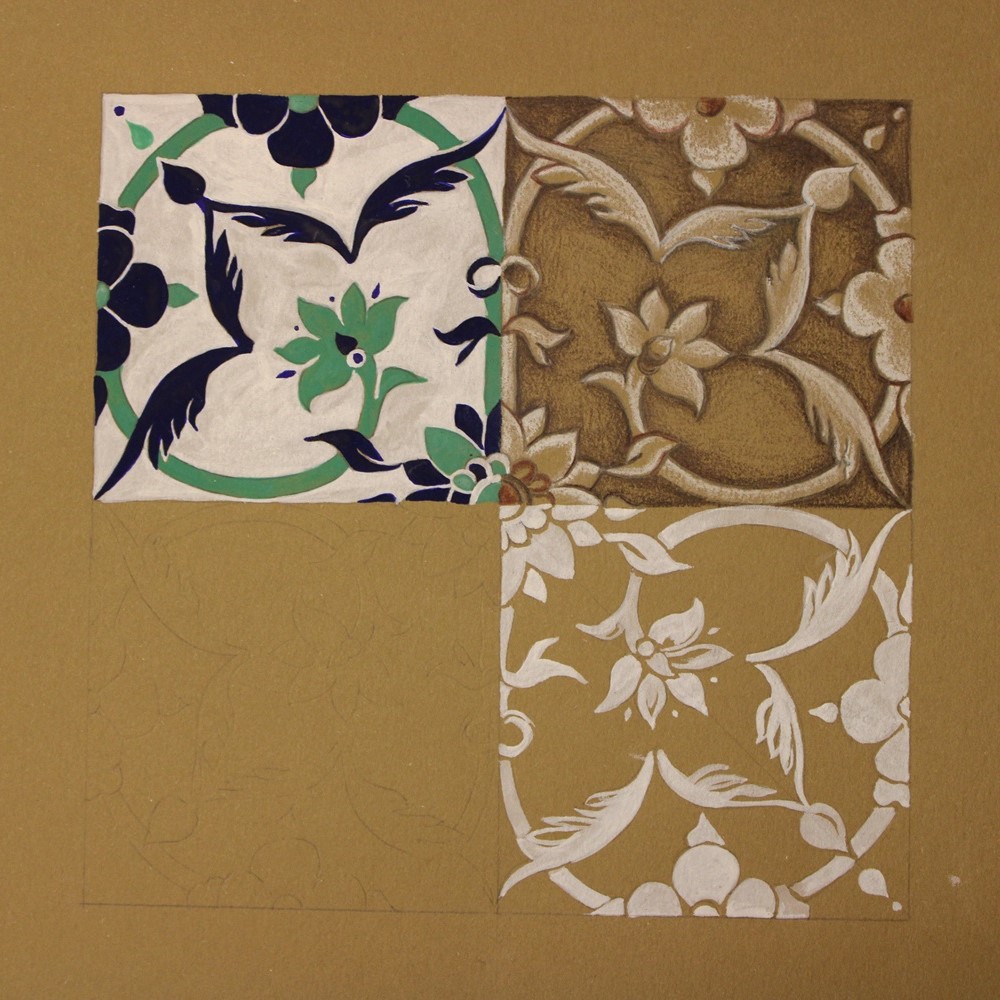
This course incorporates the visual vocabulary and skills introduced in Nabati Ornamentation: Motifs, introducing students to principles of compositional design as applied in various craft contexts.
Nabati Ornamentation: Composition

For students who wish to create their own designs for application in specific media, this course supports students in adapting both geometric and biomorphic designs to various craft contexts, including painting, woodworking, gypsum, textiles, and ceramics.
Design Project
Craft Modules
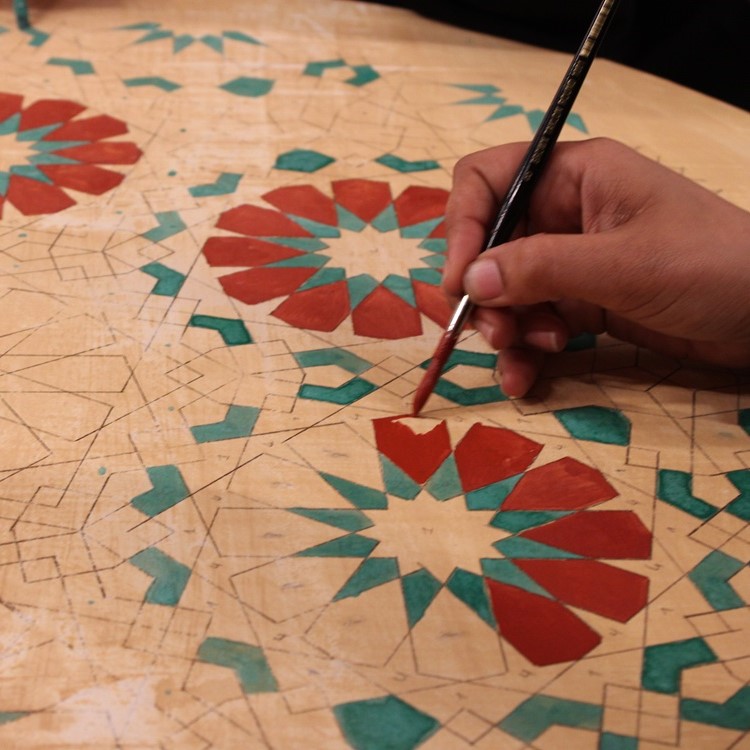
A range of courses are included under this topic, including Contextual Decorative Design, Methods and Materials, Egg Tempera Painting, and Gilding, along with various traditional painting techniques found in the region and its neighboring areas.
Decorative Painting
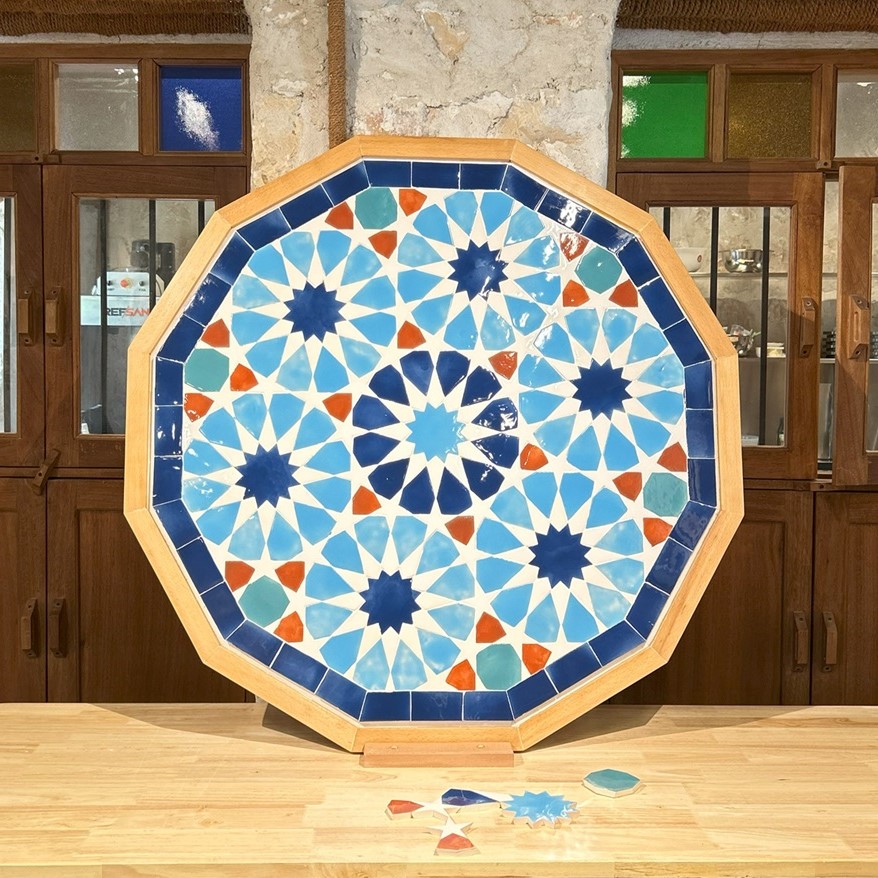
Ceramics are an artform that can be either decorative, utilitarian, or architectural, requiring students to thoughtfully integrate design and craft skills to achieve successful outcomes. Students will explore painted vessels, geometric tiles, and other ceramic skills.
Ceramics
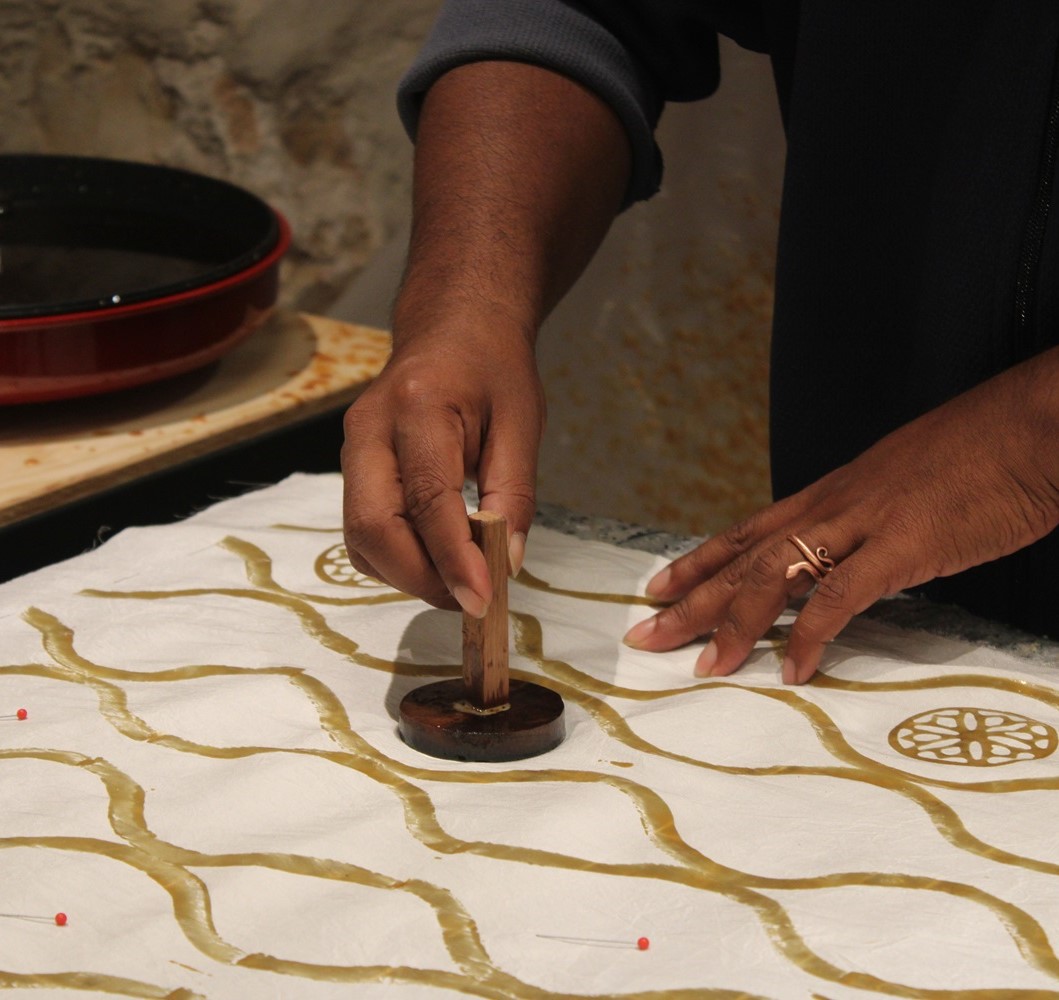
The field of textiles includes some of the earliest artforms practiced by humans. These courses closely unite an understanding of materials given to us by the natural world with practical craft skills and careful handiwork.
Textiles
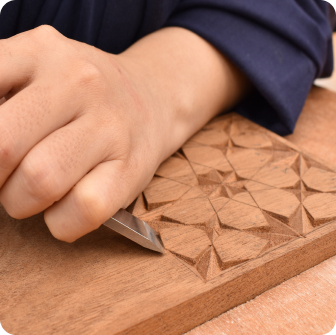
There are many ways of engaging with the warm, living material of wood. A range of courses will offer students the opportunity to explore both geometric and biomorphic designs in wood, drawing on a variety of traditional techniques.
Woodwork
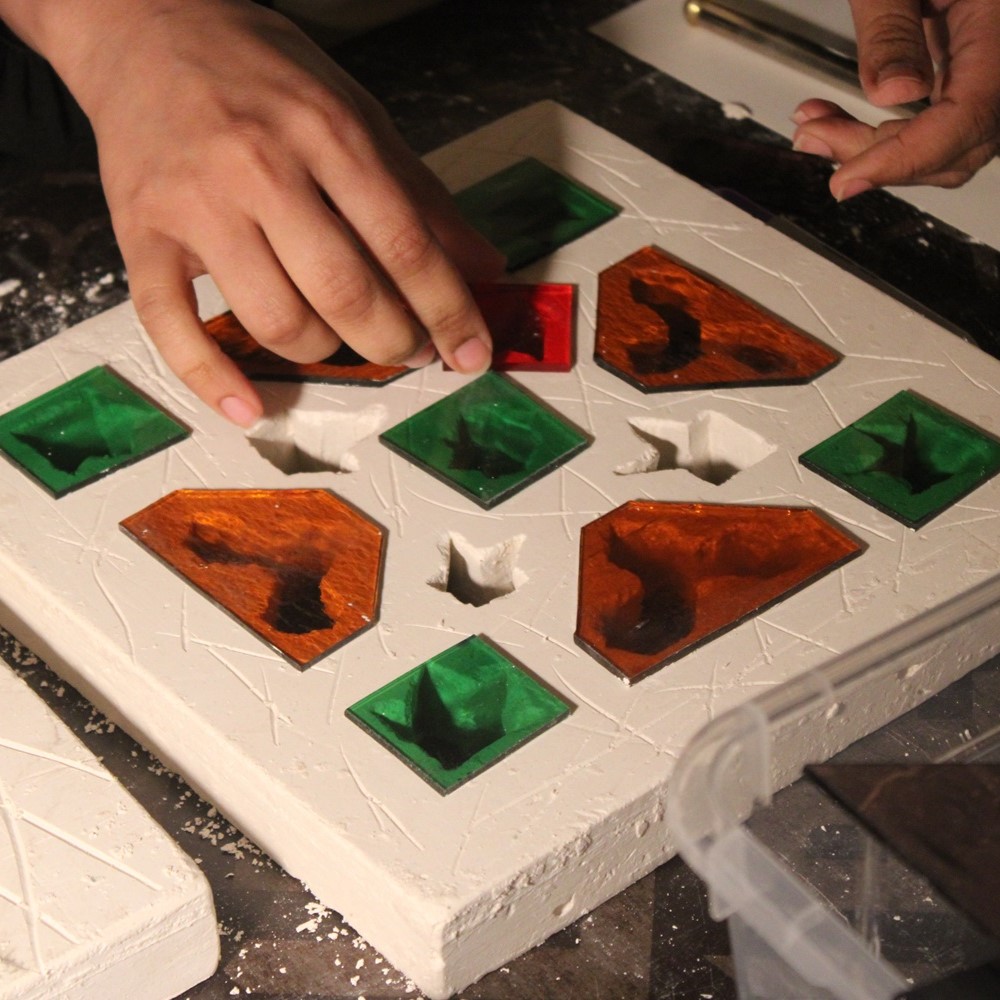
Gypsum is a traditional material that is widely used as a decorative element in the interiors and exteriors of many historic buildings. This course will teach students how to correctly mix and pour gypsum, as well as carve geometric and biomorphic patterns into its surface. The course may also involve colored glazing and stained glass.
Gypsum
Frequently Asked Questions
Herfah is a program dedicated to reviving and promoting traditional crafts deeply rooted in Qatari and Islamic culture by providing participants with hands-on experiences that connect tradition with creativity. In partnership with The King’s Foundation School of Traditional Arts, which brings global expertise in teaching and preserving heritage crafts, Herfah offers a yearly program alongside weekly workshops.
This 1-year immersive experience is designed to build foundational skills in traditional Islamic crafts, with participants engaging in both foundational modules and craft modules, guided by expert tutors.
Registration for the current program is now closed. Details about future enrollment opportunities will be shared in due course.
During Ramadan, workshops take place weekly from Sunday to Wednesday, from 9pm to 11pm at Al Khater House.
For more information on workshop dates and topics, please check the Workshops section.
Participation is open to anyone aged 18 and older. The workshops are open to all skill levels – whether you’re a beginner or already experienced, our skilled instructors will guide you step by step.
Each workshop runs from Sunday to Wednesday, with a total of four sessions (2 hours each), giving participants enough time for hands-on practice and guidance.
The fee is QAR400 per workshop, which includes all materials and tools.
Each week focuses on a different traditional craft, such as textiles, woodwork, ceramics, embroidery, painting, and more, blending heritage with creativity. For more information on workshop topics, please visit the Workshops page.
No, all tools and materials are provided. Just bring your curiosity and creativity.





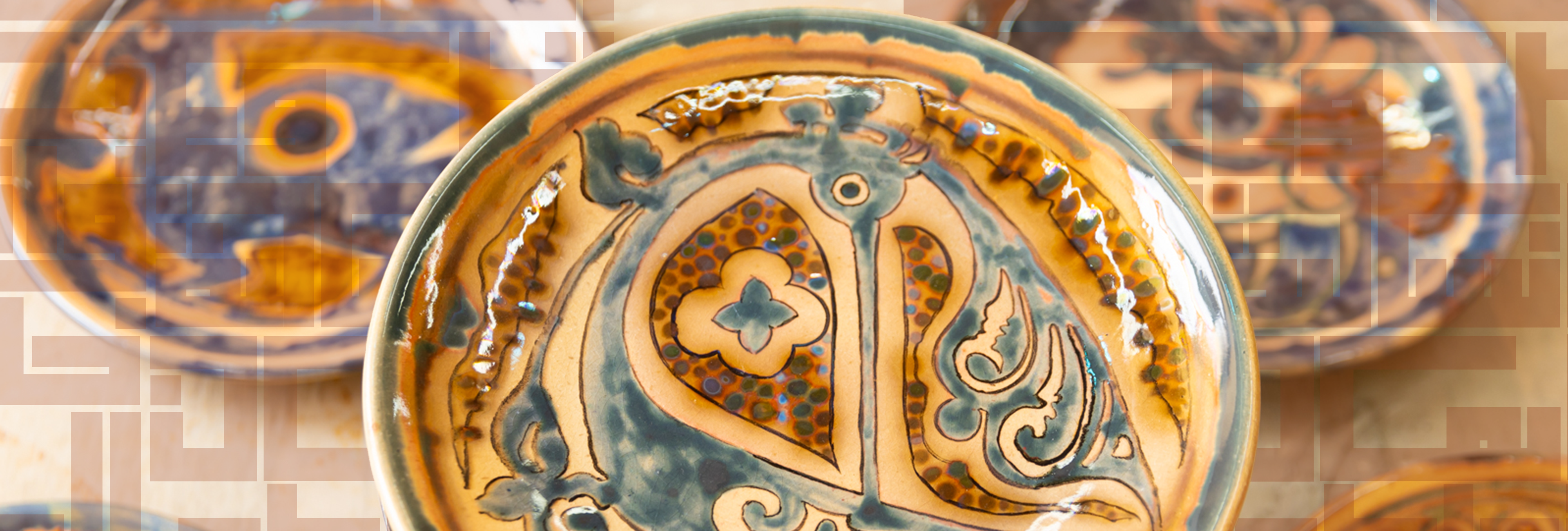
Share